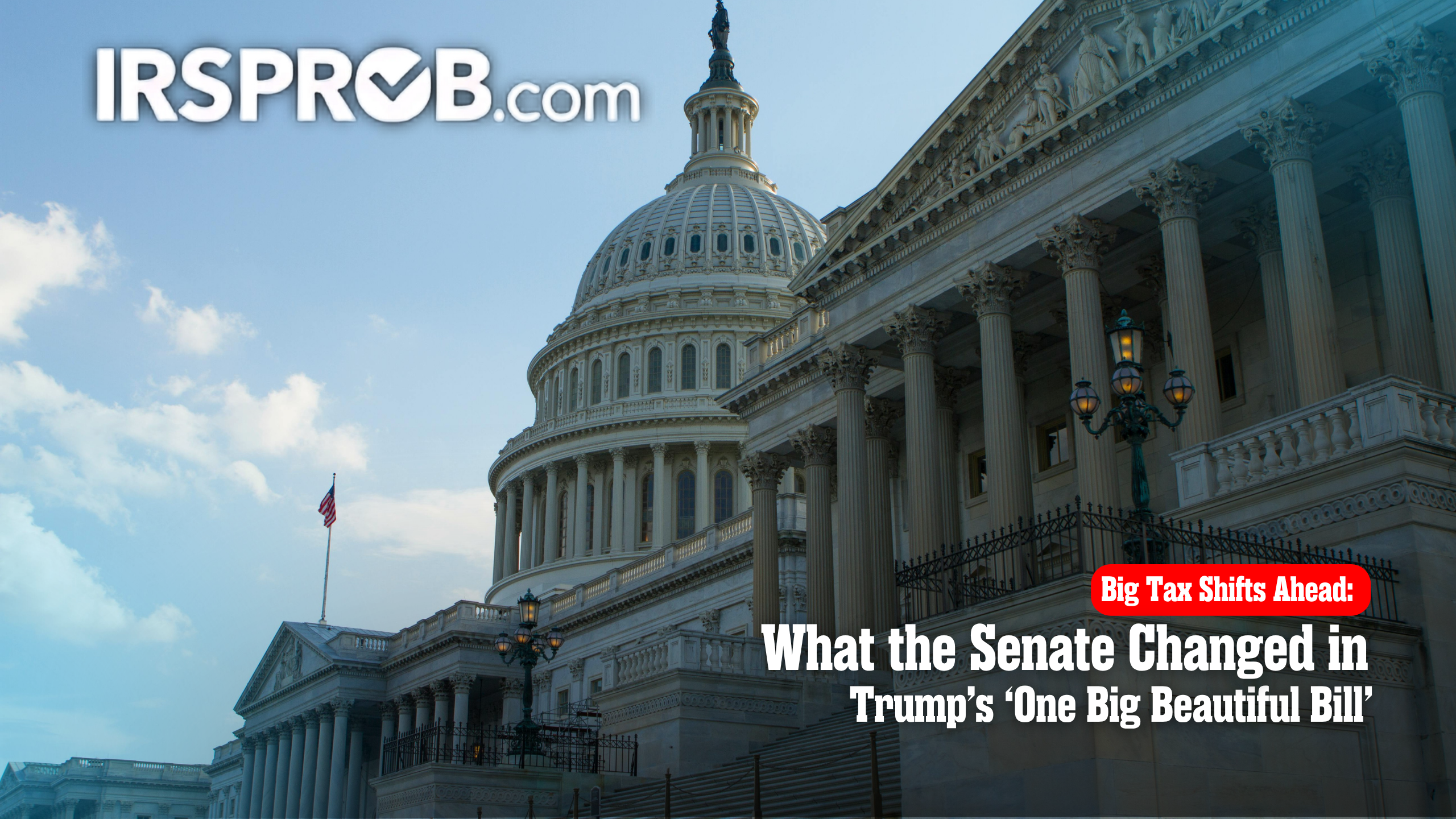IRSProb.com | Legislative Update | Summer 2023
What New Tax Legislation and Ideas are getting discussed by Our Elected Officials
A Deep Dive into the House Republican’s Tax Proposals: What to Expect
 As the intricacies of the current political climate continue to unfold, the GOP has made a pivotal move by proposing an ambitious tax plan. Although the plan’s path to approval in the Senate looks uncertain due to opposition from Democrats, it presents an interesting look at what could be if Republicans gain control of Congress and the White House after 2024.
As the intricacies of the current political climate continue to unfold, the GOP has made a pivotal move by proposing an ambitious tax plan. Although the plan’s path to approval in the Senate looks uncertain due to opposition from Democrats, it presents an interesting look at what could be if Republicans gain control of Congress and the White House after 2024.
The Republicans’ strategy to offset the cost of their tax plan by cutting certain green-energy tax breaks from last year’s Inflation Reduction Act has met with staunch opposition from the Democrats. Notably, the plan also overlooks key provisions such as expansions to the child tax credit and earned income tax credit, dear to the Democrats. Despite this, the proposal may still serve as a springboard for future negotiations on a potential year-end tax package.
Many of the proposed tax breaks are expected to conclude by the end of 2025, coinciding with the expiration of numerous provisions in the 2017 tax law. Let’s take a more comprehensive look at some of the critical tax breaks in the House Republican plan.
The proposal includes increases in standard deductions – $4,000 for couples, $2,000 for singles, and $3,000 for heads of households. However, these benefits exclude the upper-income earners.
The proposal also suggests significant alterations to the information reporting rules. Firstly, it aims to undo the upcoming $600 reporting threshold for 1099-Ks (issued by third-party settlement networks like PayPal, Square, Venmo, and eBay), restoring the previous rule of forms only being sent to payees with over 200 transactions and payments over $20,000. Moreover, the threshold for reporting non-employee payments on forms 1099-MISC and 1099-NEC would see an impressive rise from $600 to $5,000.
Businesses stand to benefit significantly from this tax plan, with the potential to write off more asset purchases as the proposal reintroduces 100% first-year bonus depreciation, up from the current 80%. The Section 179 expensing limit is set to surge from $1,160,000 to $2.5 million, and full R&D expensing, which has been altered under the 2017 tax law, would be reinstated.
For large firms, the plan proposes a change in interest deductions on business debts. While the 2017 tax law limited many big businesses’ net interest write-offs to 30% of adjusted taxable income, this new proposal would exclude depreciation and amortization write-offs from adjusted taxable income.
Additionally, sales of shares in an S corporation would become eligible for gain exclusion, provided the stock meets the rules for “qualified small business stock.”
Interestingly, the proposal does not include what some House members from high-tax states had hoped for – a hike in the $10,000 cap for deducting state and local taxes on Schedule A.
As we wait to see the course this proposal will take, it provides a glimpse into the legislative shifts we might expect regarding tax policy if the GOP gains control in future.








